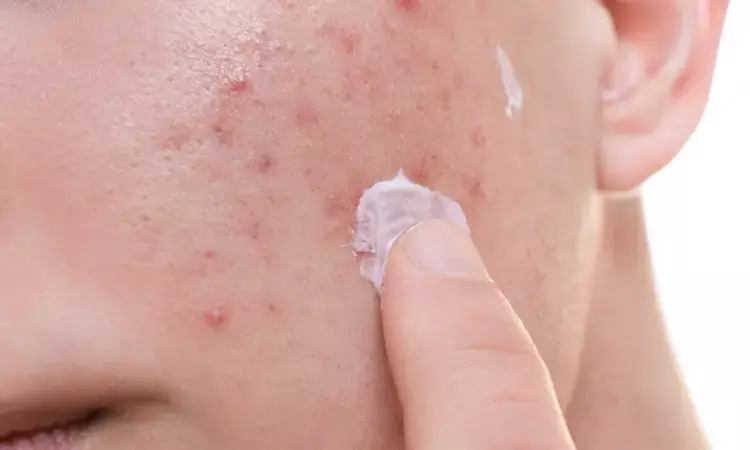- Home
- Medical news & Guidelines
- Anesthesiology
- Cardiology and CTVS
- Critical Care
- Dentistry
- Dermatology
- Diabetes and Endocrinology
- ENT
- Gastroenterology
- Medicine
- Nephrology
- Neurology
- Obstretics-Gynaecology
- Oncology
- Ophthalmology
- Orthopaedics
- Pediatrics-Neonatology
- Psychiatry
- Pulmonology
- Radiology
- Surgery
- Urology
- Laboratory Medicine
- Diet
- Nursing
- Paramedical
- Physiotherapy
- Health news
- Fact Check
- Bone Health Fact Check
- Brain Health Fact Check
- Cancer Related Fact Check
- Child Care Fact Check
- Dental and oral health fact check
- Diabetes and metabolic health fact check
- Diet and Nutrition Fact Check
- Eye and ENT Care Fact Check
- Fitness fact check
- Gut health fact check
- Heart health fact check
- Kidney health fact check
- Medical education fact check
- Men's health fact check
- Respiratory fact check
- Skin and hair care fact check
- Vaccine and Immunization fact check
- Women's health fact check
- AYUSH
- State News
- Andaman and Nicobar Islands
- Andhra Pradesh
- Arunachal Pradesh
- Assam
- Bihar
- Chandigarh
- Chattisgarh
- Dadra and Nagar Haveli
- Daman and Diu
- Delhi
- Goa
- Gujarat
- Haryana
- Himachal Pradesh
- Jammu & Kashmir
- Jharkhand
- Karnataka
- Kerala
- Ladakh
- Lakshadweep
- Madhya Pradesh
- Maharashtra
- Manipur
- Meghalaya
- Mizoram
- Nagaland
- Odisha
- Puducherry
- Punjab
- Rajasthan
- Sikkim
- Tamil Nadu
- Telangana
- Tripura
- Uttar Pradesh
- Uttrakhand
- West Bengal
- Medical Education
- Industry
Use of Benzoyl peroxide with microencapsulated tretinoin may improve acne lesions

USA: In a new study published in SKIN-The Journal of Cutaneous Medicine, it was found that over a 12-week period, encapsulated benzoyl peroxide (BPO) plus tretinoin may improve physician scores for inflammatory and non-inflammatory acne lesions.
Because of the silica microencapsulation, benzoyl peroxide is prevented from decomposing the vitamin A derivative, allowing for a more regulated release of both therapeutic compounds to patients' skin with increased tolerability. Previous studies have indicated the effectiveness of such a combination in treating acne vulgaris, however, without silica microencapsulation. Investigators from JDR Research, led by James Q. Del Rosso, sought effectiveness and safety findings from studies involving fixed-dose 3.0 mg benzoyl peroxide cream with microencapsulated tretinoin 0.1%.
This study comprised 859 patients aged ≥9 years old with moderate to severe acne in two multicenter, double-blind studies. For 12 weeks, patients were randomly assigned to receive once-daily BPO plus tretinoin or vehicle cream. The researchers sought co-primary endpoints. The first was the proportion of patients who achieved a ≥ 2-grade decrease and a Clear (0) or Almost Clear (1) score on the Investigator Global Assessment (IGA) at week 12 after starting the study. The second was the absolute difference in inflammatory and non-inflammatory lesion numbers from baseline to week 12. They also sought outcomes for safety and tolerability through adverse event reports, physical exams, and other means.
The key findings of this study were as follows:
1. In both trials' main objectives, researchers found that microencapsulated BPO with tretinoin outperformed vehicle cream.
2. In the first research, over one-fifth (39.9%) of patients treated with the combination medication had IGA success, compared to 14.3% in the vehicle group.
3. In the second study, significantly more treated patients (26.8%) attained this endpoint than the vehicle arm (15.1%).
4. In the first and second studies, patients treated with BPO with tretinoin had 21.6 and 16.2 mean inflammatory lesion reductions from baseline, compared to 14.8 and 14.1 reductions in the vehicle groups, respectively.
5. In both studies, treated patients reported 29.7 and 24.2 mean decreases in non-inflammatory lesions from baseline, compared to 19.8 and 17.4 in the vehicle arms, respectively.
6. In all studies, investigators observed that the combination treatment was well tolerated, with the most often reported adverse effects being application site discomfort (10.6%), dryness (4.9%), and exfoliation (4.1%).
"In individuals with moderate to severe acne, encapsulated benzoyl peroxide with tretinoin was a successful and safe fixed-dose regimen," concluded the PI and team.
Reference:
Del Rosso, J., Sugarman, J., Gold, M., Arekapdui, K., & Green, L. (2022). A New Frontier in Acne Treatment: Encapsulated Benzoyl Peroxide and Tretinoin . In SKIN The Journal of Cutaneous Medicine (Vol. 6, Issue 2, p. s16). National Society for Cutaneous Medicine. https://doi.org/10.25251/skin.6.supp.16
Neuroscience Masters graduate
Jacinthlyn Sylvia, a Neuroscience Master's graduate from Chennai has worked extensively in deciphering the neurobiology of cognition and motor control in aging. She also has spread-out exposure to Neurosurgery from her Bachelor’s. She is currently involved in active Neuro-Oncology research. She is an upcoming neuroscientist with a fiery passion for writing. Her news cover at Medical Dialogues feature recent discoveries and updates from the healthcare and biomedical research fields. She can be reached at editorial@medicaldialogues.in
Dr Kamal Kant Kohli-MBBS, DTCD- a chest specialist with more than 30 years of practice and a flair for writing clinical articles, Dr Kamal Kant Kohli joined Medical Dialogues as a Chief Editor of Medical News. Besides writing articles, as an editor, he proofreads and verifies all the medical content published on Medical Dialogues including those coming from journals, studies,medical conferences,guidelines etc. Email: drkohli@medicaldialogues.in. Contact no. 011-43720751


